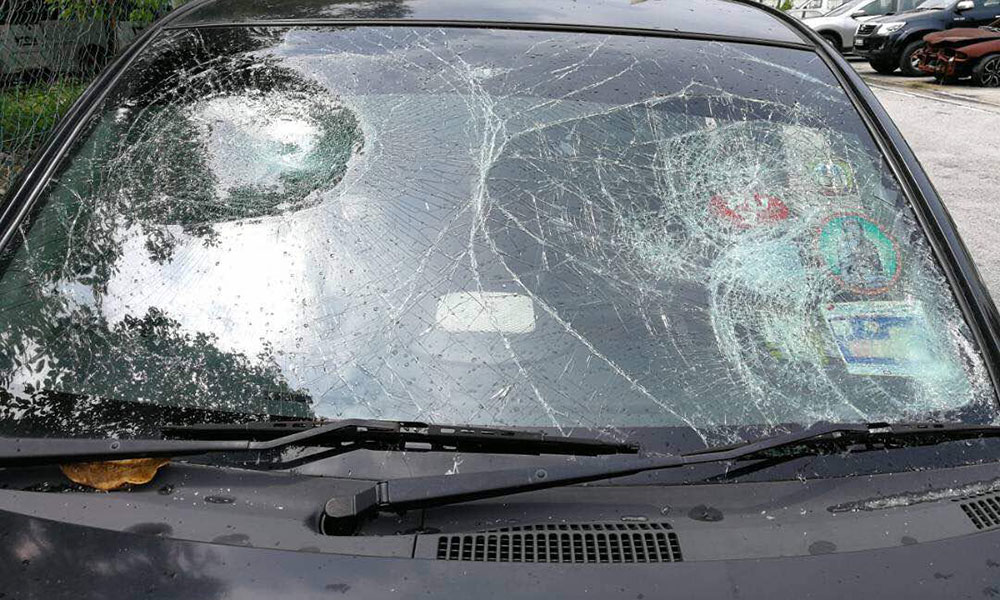Preventing spur-of-the-moment crime
The recent road rage incident that led to the death of Syed Muhammad Danial Syed Syakir should be a reminder to all Malaysians to say no to road rage and learn how to manage their anger.
All Malaysians should never succumb to committing spur-of-moment crimes as they could lead to serious consequences including severe injury and death.
In the latest incident that occurred on Saturday (10 Aug), 27-year-old Syed Muhammad Daniel died at the Nilai Medical Centre on the same day after the altercation which saw him pinned in between a couple’s car and the highway divider.
Preliminary investigations revealed that the fight between the couple and the victim occurred after a fender bender about noon near the Sungai Besi toll plaza (southbound). The police had arrested the husband and wife and they are held under remand until Aug 17.
The incident has clearly shown how a life was lost just because of a spur-of-the-moment action and reaction.
A minor accident or a small mishap could always happen but we should never allow our emotions to take over. If we cannot control our emotion, it may result in road rage and ended with death or imprisonment as what has happened in the latest incident.
We should see this unfortunate event as the focal point for everyone to see road rage from the perspective of mental health and crime prevention.
A spur-of-the-moment crime is an offence with no criminal intent and most of the time, it involves those with no criminal record. However, what triggered such crime could be prevented and a campaign should be launched to help the public manage anger, which is also a mental health issue.

When there is a road bully incident, there are a number of contributing factors such as having pro-aggressive or aggressive traits; the emotional state of both parties and the perception of rights being violated.
There are also anticipated results of the bully incident, as the perpetrator may get satisfaction from the harm suffered by the victim.
As there are diverse conditions at play, those involved in such an incident must remain calm and avoid confrontation. People who are already stressed are more likely to react aggressively and are less likely to consider other people's conditions. In a nutshell, bullies have no empathy for their victims.
Road bully cases are worsening in terms of their frequency and harm suffered, either by the victims or their belongings.
I have been highlighting the mental health condition of the people consistently and have recommended many solutions and preventive measures.
All stakeholders must take urgent steps to address mental health problems as they are like a time bomb that will eventually explode.
We have seen many similar spur-of-the-moment incidents in the past which involved children and neighbours being killed over a small issue.
Heavy workload and the increasing cost of living may also increase the level of stress which could trigger a spur-of-the-moment action that could lead to a serious incident.
We need to study and develop a comprehensive solution to help employers and workers to systematically address mental health problems inside and outside their workplace.
The Health Ministry should collaborate with public and private universities, occupational health practitioners and mental health experts to help address this issue and finding solutions to the problem include:
- Develop in-house 'Psychological First Aid' module to help employers and workers provide early assistance to those with mental health issues in the workplace.
- Train more personnel in the counselling field so that those with mental health problems could be identified and assisted in the early stage.
- Produce employers and workers who are able to assist and refer problematic workers to counsellors, psychologists and psychiatrists so that they can get proper treatment.
- Easy excess to counsellors and physiatrists via public health clinics.
- Create a module on anger management which could help reduce spur-of-the-moment incidents.
We need immediate actions to prevent similar incidents from recurring. We must always be proactive and not reactive in all our crime prevention approaches.
The writer is senior vice-chairperson of the Malaysian Crime Prevention Foundation.
The views expressed here are those of the author/contributor and do not necessarily represent the views of Malaysiakini.
RM12.50 / month
- Unlimited access to award-winning journalism
- Comment and share your opinions on all our articles
- Gift interesting stories to your friends
- Tax deductable
